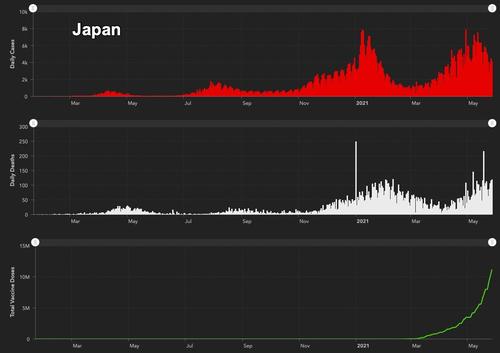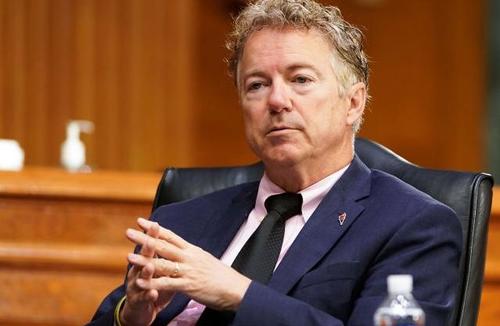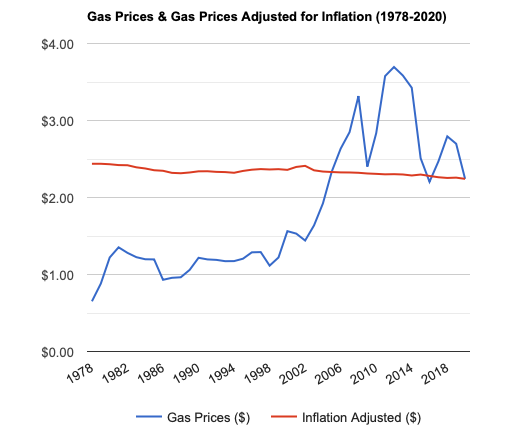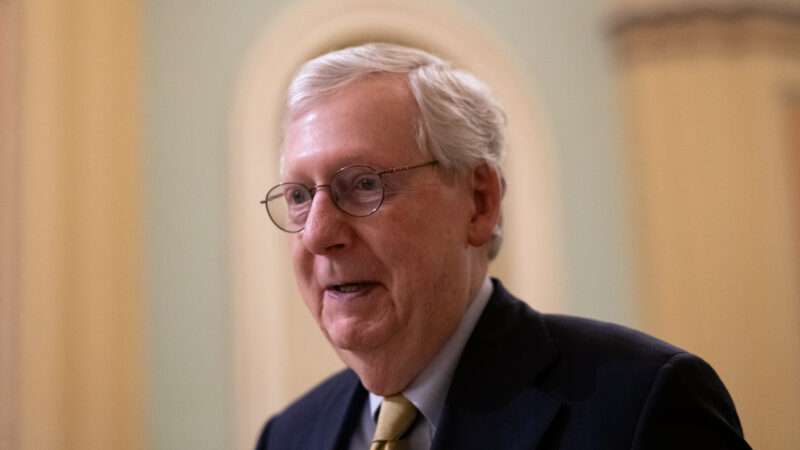Authored by Jeffrey Tucker via RealClearMarkets.com,
Many industries were throttled, bludgeoned, beaten, and even destroyed during the lockdowns of 2020. It will be years before the damage is repaired, and some of it is irreparable.

One industry that did not suffer was that which was and is devoted to writing scientific papers on the Coronavirus. Talk about boom times! A report from October 2020 estimates that 87,000 studies have been written and published in some form on the topic. It’s surely more than 100,000 by now. These writers do not produce content out of the goodness of their hearts. It’s the old rule: subsidize something (thank you Bill Gates) and you get more of it.
So many people in this field have been so busy padding their resumes with these papers, it would not be surprising that standards might have slipped a bit. Published does not mean true, and quantity does not equal quality. Nor do the multiple billions pouring into departments of epidemiological research purchase balanced wisdom.
It’s obviously impossible to read 100,000 papers on the topic – many of them contradictory, obviously – so it is standard practice to cite whatever study seems to confirm one’s priors. There is not one way to “follow the science,” as we’ve learned from Dr. Fauci’s endless television appearances. He decides the message for the day and picks the “science” to back him up, while ignoring the rest.
This is why I’m just a bit worried about a shabby little paper that appeared in the once-prestigious British journal The Lancet. It popped up there a few weeks ago: “SARS-CoV-2 elimination, not mitigation, creates best outcomes for health, the economy, and civil liberties.” I hesitate even to discuss the paper for bringing more attention to it than it deserves. Even so, any paper with the veneer of science that directly targets human liberty deserves a solid debunking.
If you think that writers of prestige papers are engaged in highly complicated undertakings, this study will shock you. It uses data from the public website OurWorldInData. The charts are from the same place. You can reproduce the study with a few clicks. Moreover, the two-page paper runs no regressions, adds no deeper level of analysis, makes no attempt at causal inference, and instead relies entirely on a kind of eyeballing of a few cherry-picked experiences.
It goes like this. The paper taps five countries (out of 195, many of which had a huge range of policies, probably amouting a possible dataset in the thousands) which the authors believe had good virus outcomes. It says of these countries that their governments pursued an “eliminationist” rather than a “mitigationist” strategy. That is to say, they attempted fully to suppress the virus, not merely to slow the spread or flatten the curve or otherwise control its impact; rather these countries were dedicated to stamping it out.
The countries singled out for good policy are: New Zealand, Australia, South Korea, Japan, and Iceland. Why these countries? They all had different policies. The authors like the outcome, which is relatively low infections and severe outcomes, smaller economic damage, and a quicker return to normal as compared with the rest of the world.
Why are they classified as eliminationist? That’s a bit of a mystery. New Zealand certainly advertised itself as having that policy, simply because its government announced that (even now, you cannot travel there, devastating an entire industry). Australia did to some extent too but mostly by default: each state has pursued lockdowns, lengthy or short, depending on the sudden appearance of cases. But South Korea, Japan, and Iceland? I find no evidence at all that these countries promised to eliminate the virus completely. They nowhere pushed for “zero Covid.”
As for their records, Japan and South Korea had relatively light stringencies but lots of “track and trace,” at least for a time until that proved preposterous with such a widespread and mostly mild disease. The same with Iceland, which had no mask wearing or business closures but instead restricted crowds for a time (not that huge crowds in Iceland is a common occurrence). What all these countries do have in common is relatively good outcomes in terms of Covid deaths per capita. (Among the five, Iceland had by far the worst among them.)
That’s not exclusive to these countries. The same good outcomes could be said of Nicaragua, Tanzania, Burundi, Singapore, Taiwan, China, Cambodia, Thailand, Hong Kong, Nicaragua, Myanmar, Angola, Papua New Guinea, Fiji, Chad, and so the list goes. You can notice certain patterns here. Nicaragua, Tanzania, Chad, and Angola simply did minimal testing, which is a perfect way to make the virus seem to go away. Whether and to what extent that accounts for “good outcomes” is impossible to say.
As for the others, Oceania in general fared massively better in general than the US, Canada, Latin America, and Europe (900 deaths per million vs. 30 deaths per million), due to a completely different immunological map and demographics (younger, healthier populations). Not even one country among the highest 100 countries in deaths per million is located in the Oceanic region, where every country had different policies from minimal to maximal. The cross immunity explanation is compelling, and already noticed by some researchers in June 2020:
“While the ongoing COVID-19 outbreak rapidly overwhelmed medical facilities of particularly Europe and North America, accounting for 78% of global deaths, only 8% of deaths have occurred in Asia where the outbreak originated. Interestingly, Asia and the Middle East have previously experienced multiple rounds of coronavirus infections [SARS-CoV-1, MERS-CoV] , perhaps suggesting buildup of acquired immunity to the causative SARS-CoV-2 that underlies COVID-19. This article hypothesizes that a causative factor underlying such low morbidity in these regions is perhaps (at least in part) due to acquired immunity from multiple rounds of coronavirus infections and discusses the mechanisms and recent evidence to support such assertions. Further investigations of such phenomenon would allow us to examine strategies to confer protective immunity, perhaps aiding vaccine development.”
Notice the nuance in that paragraph: “at least in part.” This is the language of a person who only reports what he can say with evidence to back it.
This language is utterly absent in the offending Lancet piece, which merely invoked five countries with good outcomes, named their policies eliminationist, declares that good, and thus concludes that we should have snap lockdowns forever in every country in the world.
In the US alone, we had very close to a natural experiment, with the worst outcomes dabbling in just such eliminationist tactics (New York, Massachusetts, California) while others opting for openness and focused protection (South Dakota, Georgia, Florida). The record of the open states is far better. You might think such an empirical record would matter for a study attempting to argue for eliminationism.
Still, I can easily imagine the Sunday morning TV shows reporting the following during the next mutation of SARS-CoV-2 or SARS-CoV-3: “Studies have shown that countries that act fast to crush the virus have better outcomes, less economic damage, and more liberty over the long run!”
Out with the Constitution. Out with the rule of law. Out with the expectation of a continuously functioning market and social order. Out with travel plans, business planning, and normal life in general. All of our rights, freedoms, laws, and expectations must give way to the disease planners who will keep us informed about whether and to what extent we can make our own decisions.
Make no mistake: the idea of virus elimination via government is a fundamental threat to all Enlightenment values. It is not scientific at all: serious scholars in this field have observed that virus suppression through force is impossible and foolish. If temporarily successful, it merely results in a population with a naive immune system that is more susceptible to a more serious disease later.
Eliminationism merely uses the veneer of science to enthrone a scientific elite to rule the world regardless of democracy, traditions, rights, or any other old-fashioned idea along those lines. It is a fundamental regime change, one tested (and failed) in 2020 but now proposed as the general practice forever, regardless of evidence.
There is a deeper problem here. Covid seems mostly gone and the lockdowns are slated to go away. But the political outlook that gave rise to them – the belief that government has the ability, the power, and the obligation to manage, control, and finally suppress a germ – is still with us and largely unchallenged in the media and academic realms.
All the intellectual conditions that led to the catastrophe of 2020 are still with us. No one is safe until that presumption of control is smashed.











